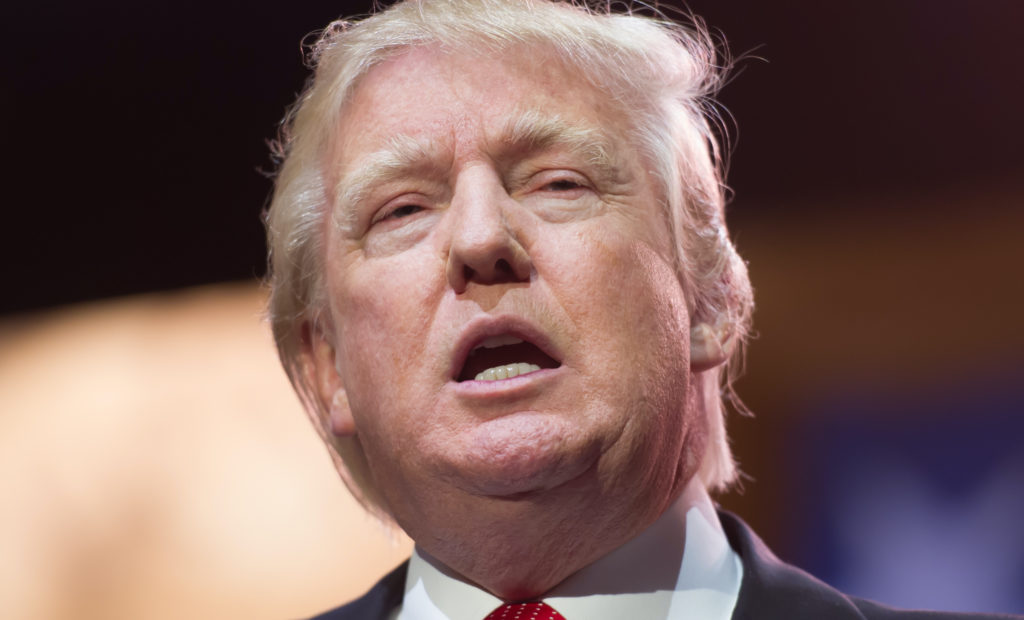The problems with section 3

For more than a year there has been a groundswell of support in favor of using section 3 of the Constitution’s 14th amendment for permanently banning Donald Trump from public office. Why hasn’t it been used? While it’s an appetizing prospect and one that could solve many problems, there are several impediments to its implementation. Section 3 of the 14th amendment explicitly states:
“No person shall be a Senator or Representative in Congress, or elector of President and Vice President, or hold any office, civil or military, under the United States, or under any state, who, having previously taken an oath, as a member of Congress, or as an officer of the United States, or as a member of any state legislature, or as an executive or judicial officer of any state, to support the Constitution of the United States, shall have engaged in insurrection or rebellion against the same, or given aid or comfort to the enemies thereof. But Congress may, by a vote of two-thirds of each House, remove such disability.”
Which is all well and good. But most people who demand that section 3 of the 14th amendment be triggered for Donald Trump don’t seem to have any idea exactly how it can be triggered. The answer is a legal spaghetti that I won’t drag you through because I am not a lawyer and I’m not sure I understand all of it anyway.
But one way to do it is for Congress to write and enact defining legislation, that is, to write and pass a “January 6 Act” disqualifying anyone who participated in the January 6th insurrection from holding public office under Section 3 of the 14th. Of course, such legislation by definition would not include such people as, say, Jake Angeli, the so-called QAnon Shaman. Mr. Angeli has never “previously taken an oath, as a member of Congress, or as an officer of the United States” and is therefore, peculiarly, not covered by Section 3 of the 14th.
Therefore, in order to make sure that such legislation is Constitutionally bulletproof and to make it harder for it to be challenged in the Supreme Court, the legislation would need to be confined in application to people like Donald Trump and, arguably, people like Senator Josh Hawley and Congresswoman Marjorie Taylor Greene. So far so good.
But there are problems of definition. First of all, article 3 defines triggering offices as being slightly different from banned offices, and it’s not 100% clear whether or not the presidency of the United States belongs to both. Apparently it can be argued that it doesn’t!
Secondly, there is no clear distinction between whether or not section 3 applies to those who participated in the insurrection and or those who merely encouraged it. Did Donald Trump participate or encourage or both? I believe he did both, but a necessarily dispassionate legal inquiry might reach a different conclusion
There’s also another subtlety in all this that, for those of you who are thinking that it doesn’t matter because Donald Trump will never run again because he will be in prison, need to consider. Whether or not Trump will run in 2024, there are many people who think he will and are behaving accordingly. Many of those people are extremely dangerous and may be contemplating violence between now and then. If they knew that Trump was not eligible by law to run again would it have a calming effect on such violent elements who are considering, say, a second insurrection? Perhaps.
Therefore, that it might have a tranquilizing effect on dangerous elements seems to be the only immediate advantage to triggering section 3 of the 14th Amendment just now, and I’m not sure it’s such a good use of legislative time. We have larger issues, and while it has a lot of emotional appeal, section 3 is so bogged down in vagaries, impotence and legal exclusions that it might not be worth the effort. And, as ever, ladies and gentlemen, brothers and sisters, comrades and friends, stay safe.

Robert Harrington is an American expat living in Britain. He is a portrait painter.
